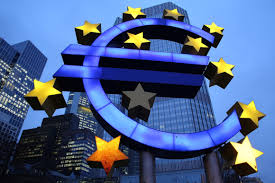
Any debate of austerity in Europe has been pushed to the sidelines because of the novel coronavirus pandemic and instead the region is seeing a race among economies to spend their way out of the pandemic induced recession and gain back some semblance of normality.
The trillions of dollars that are being thrown at the challenge in the region however does not show the deep national differences among countries of Europe in terms of the amount and type of aid that are being offered.
Essentially, the richer countries of the Northern Europe are able to expend more cash to prop up essential parts of their economies while providing short-term relief in the form loans and temporary tax holidays has been the major tool for the poorer countries of the South.
One of the aims of the 750-billion-euro joint recovery fund of the European Union is to remove such differences and ensure that the wealth gap does not grow. However, that fund will only be available next year and that too in phases.
Until such time, the wealth differences between countries will continue to prevail.
8.3 per cent of its total economic output has been expended by German in the form of outright, non-repayable support by Germany which is not far off from the 9.1 per cent of GDP spend by the United States, according to the Brussels-based think tank Bruegel.
That amount spent by Germany also includes 100 billion euros for recapitulating and purchasing stakes in companies affected by coronavirus and a 23.5 billion expended in wage subsidies for those working on reduced hours as well as an amount of 18 billion in direct grants to small companies in greatest need.
In contrast Portugal announced a direct stimulus aid of about 2.5 per cent of its total economic output while Greece, Spain and Italy expended 3.1 per cent, 3.7 per cent and Italy’s 3.4 per cent respectively.
Even though moratoriums on the loans and mortgages of small companies worth a massive 220 billion-plus euros was offered by Italy, starting at the end of January, they will have to carry on where they left off with loans just as big as before.
A similar situation is faced by Spain grace periods with companies on repayment schedules was negotiated for government backed credits of 140 billion euros to businesses and banks. But with those grace periods coming to an end, there are concerns about a string of bankruptcies.
Therefor the complete picture is not conveyed by last week’s record third quarter expansion of the European economy as it reflects the state of the economy prior to the second wave of Covid-19 infections that started in October in the region ND and state support still being the only way of support for the poorest economies.
And with new Covid-19 restrictions starting to hit economy activity, the third quarter growth appears to be unsustainable.
(Source:www.reuters.com)
The trillions of dollars that are being thrown at the challenge in the region however does not show the deep national differences among countries of Europe in terms of the amount and type of aid that are being offered.
Essentially, the richer countries of the Northern Europe are able to expend more cash to prop up essential parts of their economies while providing short-term relief in the form loans and temporary tax holidays has been the major tool for the poorer countries of the South.
One of the aims of the 750-billion-euro joint recovery fund of the European Union is to remove such differences and ensure that the wealth gap does not grow. However, that fund will only be available next year and that too in phases.
Until such time, the wealth differences between countries will continue to prevail.
8.3 per cent of its total economic output has been expended by German in the form of outright, non-repayable support by Germany which is not far off from the 9.1 per cent of GDP spend by the United States, according to the Brussels-based think tank Bruegel.
That amount spent by Germany also includes 100 billion euros for recapitulating and purchasing stakes in companies affected by coronavirus and a 23.5 billion expended in wage subsidies for those working on reduced hours as well as an amount of 18 billion in direct grants to small companies in greatest need.
In contrast Portugal announced a direct stimulus aid of about 2.5 per cent of its total economic output while Greece, Spain and Italy expended 3.1 per cent, 3.7 per cent and Italy’s 3.4 per cent respectively.
Even though moratoriums on the loans and mortgages of small companies worth a massive 220 billion-plus euros was offered by Italy, starting at the end of January, they will have to carry on where they left off with loans just as big as before.
A similar situation is faced by Spain grace periods with companies on repayment schedules was negotiated for government backed credits of 140 billion euros to businesses and banks. But with those grace periods coming to an end, there are concerns about a string of bankruptcies.
Therefor the complete picture is not conveyed by last week’s record third quarter expansion of the European economy as it reflects the state of the economy prior to the second wave of Covid-19 infections that started in October in the region ND and state support still being the only way of support for the poorest economies.
And with new Covid-19 restrictions starting to hit economy activity, the third quarter growth appears to be unsustainable.
(Source:www.reuters.com)





